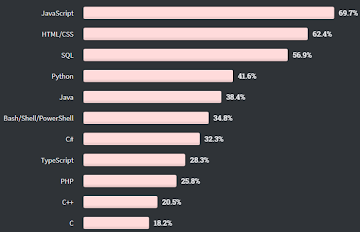Tech Versum: Explore the Future of Technology
Dive into the latest trends and innovations in technology with Tech Versum.
JavaScript Frameworks: Choose Your Adventure
Explore the ultimate guide to JavaScript frameworks! Discover which one fits your needs and kickstart your coding adventure today!
Understanding the Key Differences Between Popular JavaScript Frameworks
JavaScript frameworks have revolutionized web development by providing structured ways to build complex applications. Among the most popular frameworks are React, Angular, and Vue.js. Each of these frameworks has its unique features and advantages, catering to different types of projects. For instance, React is celebrated for its virtual DOM and component-based architecture, making it ideal for building high-performance user interfaces. In contrast, Angular offers a full-fledged MVC (Model-View-Controller) framework, which provides a comprehensive solution for large-scale applications. Learn more about React and discover Angular's architecture.
On the other hand, Vue.js stands out for its ease of integration and gradual learning curve, making it an excellent choice for newcomers to web development. Its simplicity enables developers to incorporate it into existing projects without a complete overhaul. Moreover, Vue.js features a reactive data model that enhances user experience by ensuring immediate updates to the interface. Understanding these key differences is crucial for developers when selecting the right framework for their projects. For a deeper dive into Vue.js, check out the official guide.

Choosing the Right JavaScript Framework for Your Project: A Comprehensive Guide
Choosing the right JavaScript framework for your project is crucial for ensuring smooth development and maintaining a scalable codebase. With numerous frameworks available, such as React, Vue.js, and Angular, it's essential to assess their strengths and weaknesses in relation to your specific project requirements. Consider factors such as performance, community support, and learning curve. Each framework has its unique features, so creating a list of priorities for your project will help you make an informed choice.
Another significant aspect to consider is the long-term sustainability of the framework. It's important to check how frequently the framework is updated and the size of its community. A vibrant community means more resources, such as Stack Overflow support and a wealth of tutorials that can help you troubleshoot issues. Furthermore, consider your team's proficiency with the language and their familiarity with the chosen framework. A framework that aligns with your team's skills will not only speed up development but also lead to better overall project outcomes.
What Are the Benefits of Using JavaScript Frameworks in Modern Development?
JavaScript frameworks offer a plethora of benefits in modern web development, streamlining the process of building high-performance applications. Frameworks like React, Angular, and Vue.js provide developers with reusable components, which significantly reduces development time and ensures consistency across projects. This modularity allows teams to collaborate more effectively, as different developers can work on various components simultaneously without causing conflicts.
Additionally, most JavaScript frameworks come equipped with powerful tools and libraries that enhance functionality and performance. For instance, built-in state management and routing features facilitate the creation of complex applications without the need for extensive boilerplate code. Furthermore, using a framework enhances scalability and maintainability, making it easier to implement future updates or modifications. As cited by Smashing Magazine, these benefits make JavaScript frameworks indispensable for developers aiming to build responsive and dynamic websites.